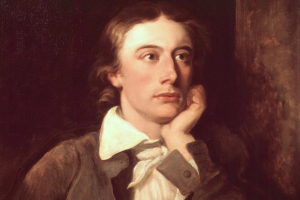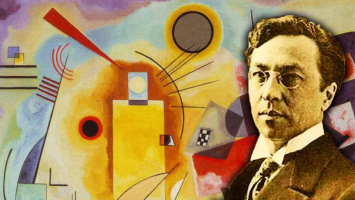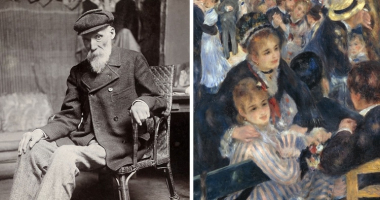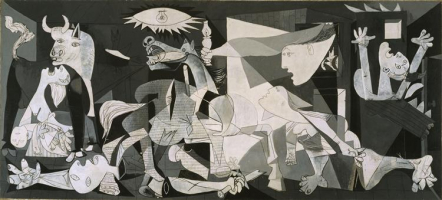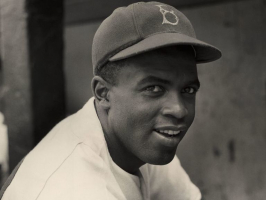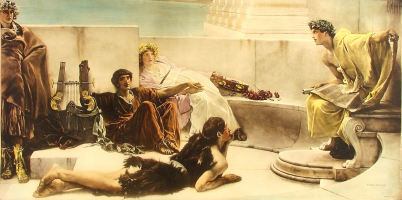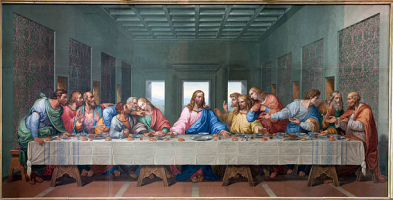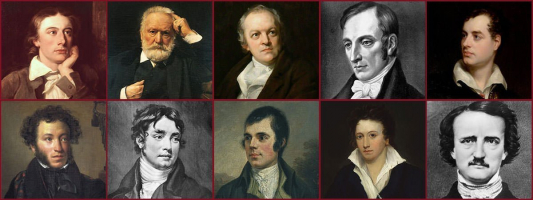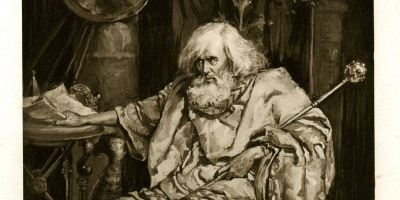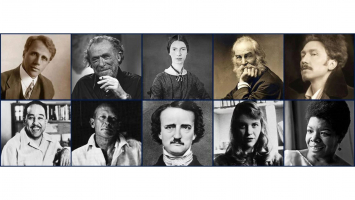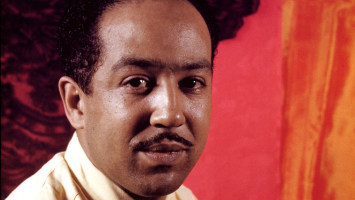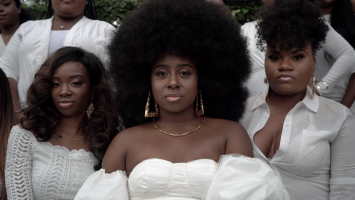Top 10 Most Famous Poems By African American Poets
Since the 18th century, African Americans have greatly influenced both American and international poetry. The oldest known black American poets hail from the ... read more...18th century, and they include Jupiter Hammon, Lucy Terry, and Phillis Wheatley. The first poem by a black poet is known to be Terry's "Bar Fight," which he wrote in 1746 but did not publish until 1855. The number of African American authors increased significantly in the 19th century, but it was the 20th century that saw them reach their pinnacle as some of the world's most celebrated poets. The Harlem Renaissance, an African American movement based in the Harlem district, was a significant turning point in this upsurge. African American poetry has prospered since the Harlem Renaissance and today some of the best known poets in the world are black poets. Here are the 10 most famous poems written by African American writers.
-
The poem "If We Must Die" by Jamaican-American author Claude McKay (1890–1948) appeared in The Liberator magazine's July 1919 issue. In response to white American mob violence against African-American communities during the Red Summer, McKay wrote the poem. Although no particular group of people is mentioned in the poem, it has been used to symbolize various oppressed communities and it was regarded as one of McKay's most well-known poems.
The poem "certainly marks the beginning of the Harlem Renaissance since it provides expression to a new racial spirit and self-awareness," says Jordanian scholar Shadi Neimneh. It has also been referred to as the "inaugural address" of the Renaissance and "the most known of the Harlem Renaissance sonnets." Wallace Thurman said that the poem embodied the spirit of the New Negro movement since it focused more on self-assertion than on evoking compassion. The poem was cited as motivational for those going through oppression by the scholar Jean Wagner, who stated that "along with the will to resistance of black Americans that it expresses, it voices also the will of oppressed people of every age who, whatever their race and wherever their region, are fighting with their backs to the wall to win their freedom."
By using "we" repeatedly, McKay extends his poem to whoever the poem reaches; there are no phrases tying it to a specific group or race—and it can apply to any group being attacked by "monsters we defy." Tonya Foster wrote that McKay's poem transformed those who were persecuted into heroes and described it as a "call to arms for workers."
Poet: Claude McKay
Published: 1919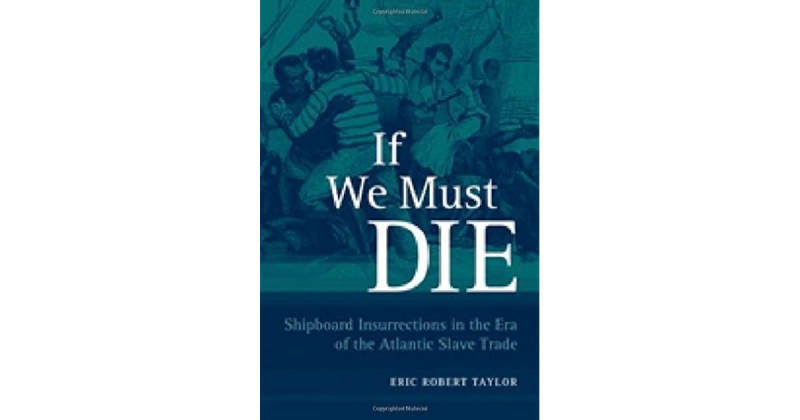
Source: goodreads.com 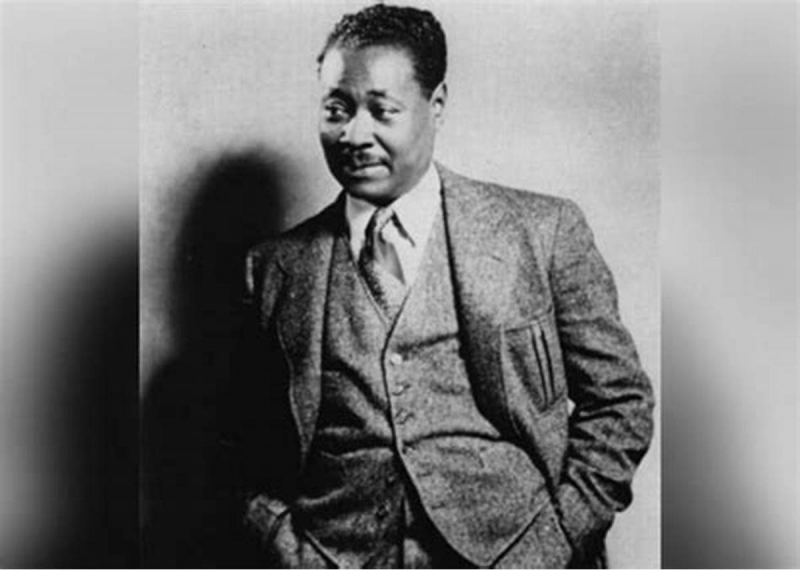
Source: seattlepi.com -
Paul Laurence Dunbar, an African American poet and novelist, penned "We Wear the Mask" in 1895. "We Wear the Mask," like much of Dunbar's writing, is a response to the experience of being black in America in the years following the Civil War, when things appeared to have improved for black Americans but in reality they were still subjected to severe bigotry and suffering. Dunbar likens enduring the agony of oppression to donning a mask that hides the wearer's anguish while projecting a happier face to the outside world.
However, despite everything, the poem itself does not directly discuss race; instead, its message may be applied to any situation in which oppressed individuals are required to put on a brave face in order to survive in an unsympathetic, prejudiced society. We all put up a facade that makes us appear content, yet this is a falsehood. The mask casts a shadow over our eyes and conceals our cheeks. We pay for the fact that humans are capable of such duplicity by wearing this mask. We smile even when our emotions feel broken and battered, and when we speak to others, we carefully make millions of small adjustments in an effort to hide our genuine selves.
What would the rest of society gain by carefully observing every facet of our suffering? No, only when we are wearing masks will society be able to see our faces. Even though we are grinning, we are actually praying to God from the bottom of our broken hearts. We sing, but the mile we have to go through feels like it will take forever because of the nasty muck. Let the rest of society act as though we aren't in pain despite all of this. We'll continue donning the mask in the interim!
Poet: Paul Laurence Dunbar
Published: 1895
Source: YouTube>Word Play 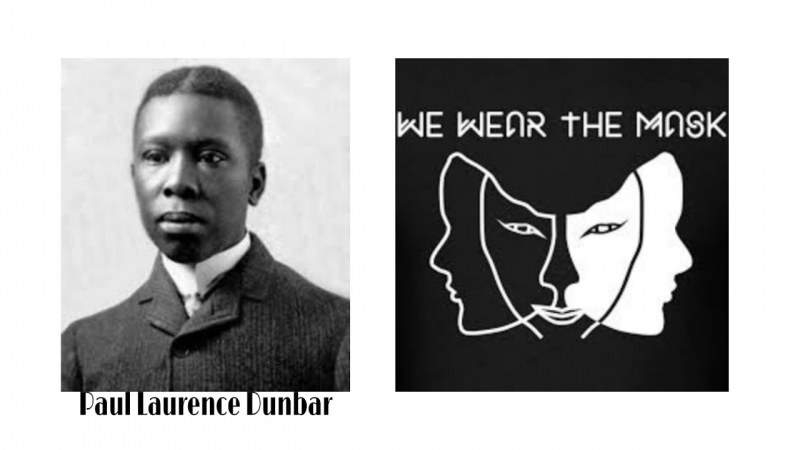
Source: YouTube -
Throughout his lengthy and accomplished career as a poet, Derek Walcott achieved several accomplishments, including winning the 1992 Nobel Prize for Literature. Although the Homeric epic Omeros is his most well-regarded poetry, Love After Love is arguably his most well-known. The poem deviates from the norm for a love poem by emphasizing self-love. It specifically talks about how crucial it is to love oneself after a relationship ends. Its central premise is the idea of regaining one's wholeness via self-awareness. Love After Love is a four-stanza poem written in the manner of advice given to someone who is distressed because of a poor relationship. The speaker thinks this person has changed into someone else and, only when he fully embraces his true self, will he be able to become fully content.
The four-stanza poem Love After Love by Derek Walcott is written in the guise of a person giving advice to a distraught individual. Readers can deduce from those four stanzas that the individual receiving this advice is still reeling from the misery of the experience, and that the distress stems from a terrible relationship that has ended or should end. In any case, Walcott informs this person—this "you"—that as a result of this relationship, not only will things become better, but also the entire status of things will improve. The main focus of the poem appears to be the cause of this, as the speaker repeatedly states, that who this person has become does not accurately represent who they truly are, but one day, their true self will return. On that day, they will be happy again since only in embracing who they are can they fully be content.Poet: Derek Walcott
Published: 1976
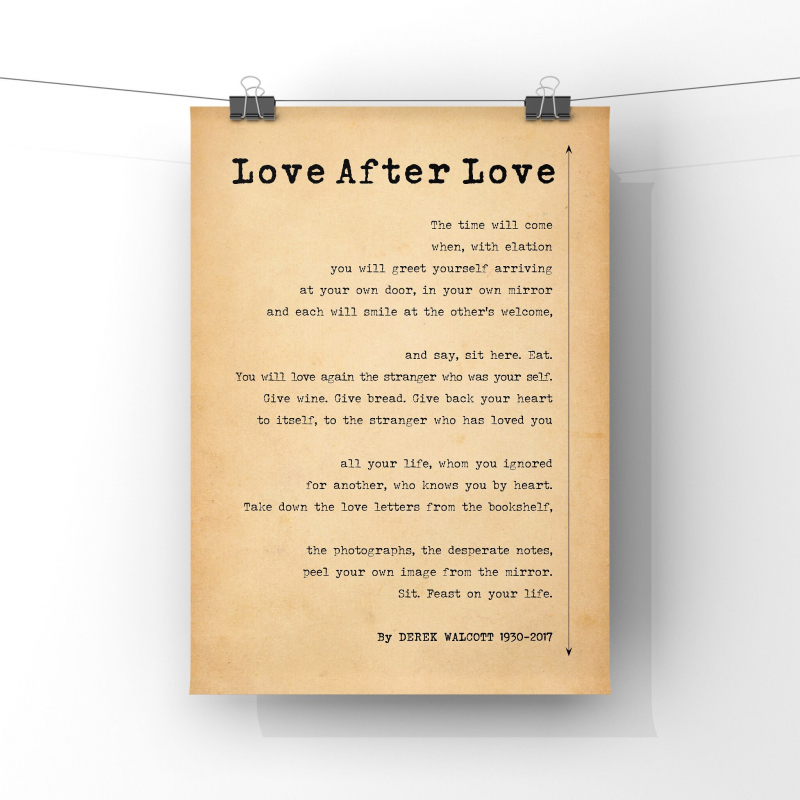
Source: anthileoni.com 
Source: anthileoni.com -
Perhaps the most well-known African American poet in the world, Nikki Giovanni is praised by both the general public and the literary community. Though its brief title has made it famous, the poem's original title was "Ego-Tripping," making it her most well-known piece of poetry (there may be a reason why). The poem's title alludes to an ego so big that the author is tripping over it. When Giovanni visited Africa for the first time in 1972, she was inspired to write the poem after seeing the accomplishments of some of the major old African civilizations, such as the Egyptians, the Carthagians, and the Ethiopians.
As she celebrates both being black and being a woman, the speaker of the poem joins two significant beginnings. Ego Tripping is one of Giovanni’s favorite poems and she has included it in at least three of her poetry collections. Nikki Giovanni's poem "Ego-Tripping" was first released in 1972 as part of the poetry book My House. Ego-Tripping and Other Poems for Young People, a children's poetry collection that was released the next year, also contains the piece. In the latter book, George Ford's pictures present children with empowering representations of black pride. The images and text extol strength and power; anything that may be envisioned is conceivable. Periods, commas, and other punctuation are not used by Giovanni. There aren't any breaks or locations for the reader to take a breath.
Poet: Nikki Giovanni
Published: 1972
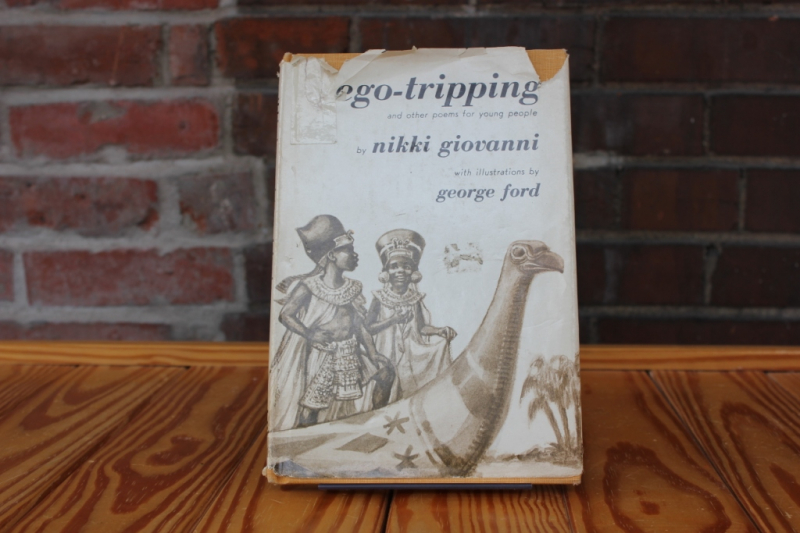
Source: culturalfront.org 
Source: Hamilton College -
The poem "We Real Cool" by Gwendolyn Brooks comprises four stanzas and eight lines, which are broken up into repeating couplets. The poem is fairly brief and uses the fewest possible words to convey the speaker's meaning. Each line contains three words, the final of which is "We," with the exception of the first and last. The simplest rhymes are produced as a result. Up until the last line of the poem, it is a constant. After the words "Die soon," it stops. The conclusion imitated death itself.
Numerous alternate interpretations of the speaker have been made.
A player speaking on behalf of the entire group, a spectator projecting their opinions onto the group, or all seven players simultaneously speaking each line are all possibilities. The speaker of the poem declares at the outset that he and his friends are "cool." They stopped attending school to avoid the establishment, where they now spend their days playing pool. The players don't appear to care about their futures, only the here and now. They are "Lurk[ing]" at night and consuming dilute gin to satisfy their most fundamental needs.The poem concludes with the speaker noting and accepting the fact that all are going to “Die soon.” This is a striking ending that makes one wonder how the characters got into the situation they are in and if they are truly happy and confident with the choices they made.
Poet: Gwendolyn Brooks
Published: 1960
Source: Fine Art America 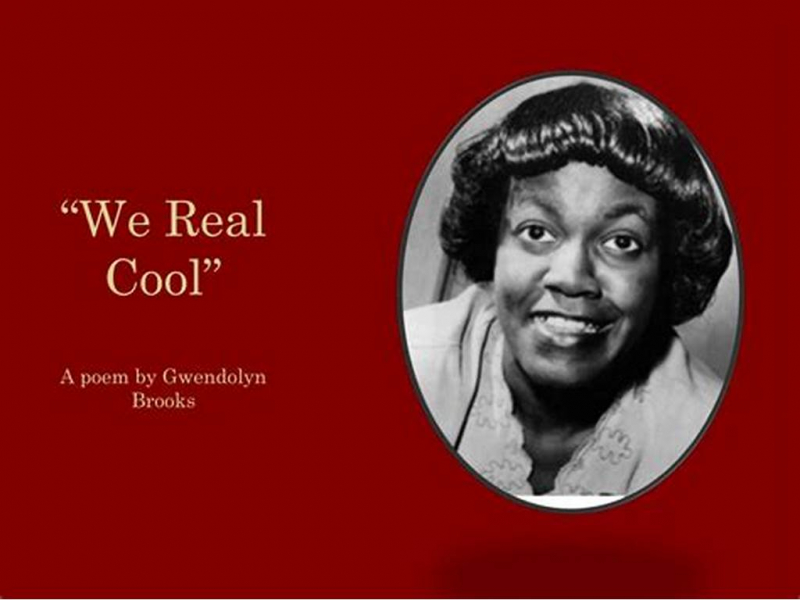
Source: SlideServe -
African American poet Langston Hughes was a key figure in the Harlem Renaissance. Many people think of him as the finest black poet who has ever lived. Hughes' Montage of a Dream Deferred, an anthology of poetry, has the first mention of Harlem. The Harlem Renaissance was when Hughes' writing was at its best. Numerous African Americans were famous as writers, painters, performers, and other types of celebrities during this particular period in American history.
For the first time in history, African Americans were able to display their genuine potential and intelligence during this period. Only the African American community recognized African American artists, poets, novelists, and playwrights; however, it was obvious that separate was not equal, and Langston Hughes, along with many other up-and-coming writers of his time, wanted their work to be respected by the world, not just by their own community.
In response to how he felt, having his own creative talent kept apart from that of his white peers, Langston Hughes wrote "Harlem (A Dream Deferred)." In order for his literary works to be respected by all authors of his period, not just those in Harlem, he desired true equality to rule. Simply put, this poem, which can be read in its entirety here, yet profoundly reveals his feelings. The poem’s biblical reference is used to draw his readers to his point of view.
Poet: Langston Hughes
Published: 1951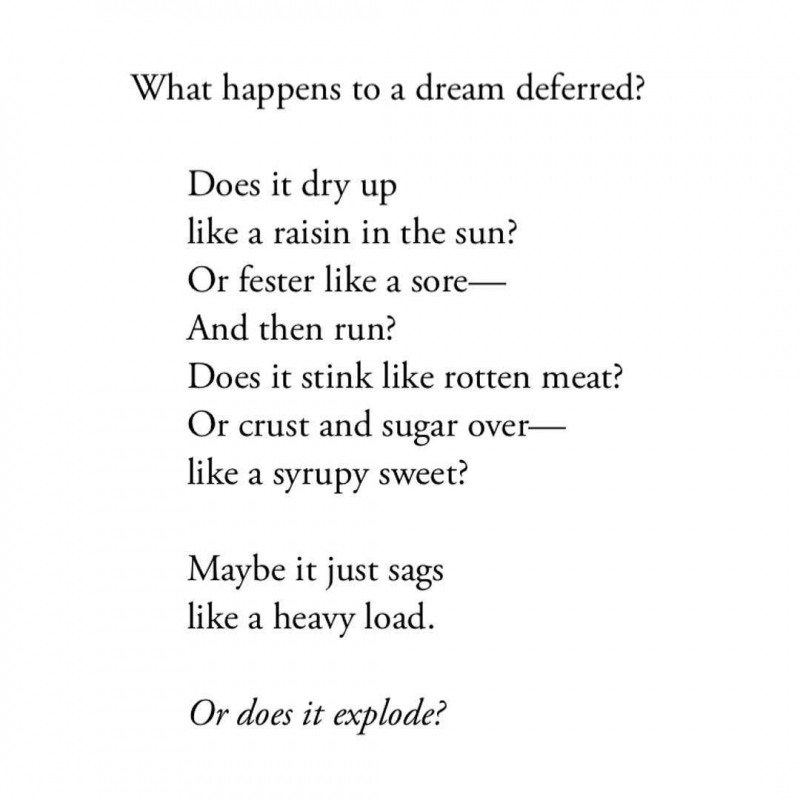
Source: Pinterest 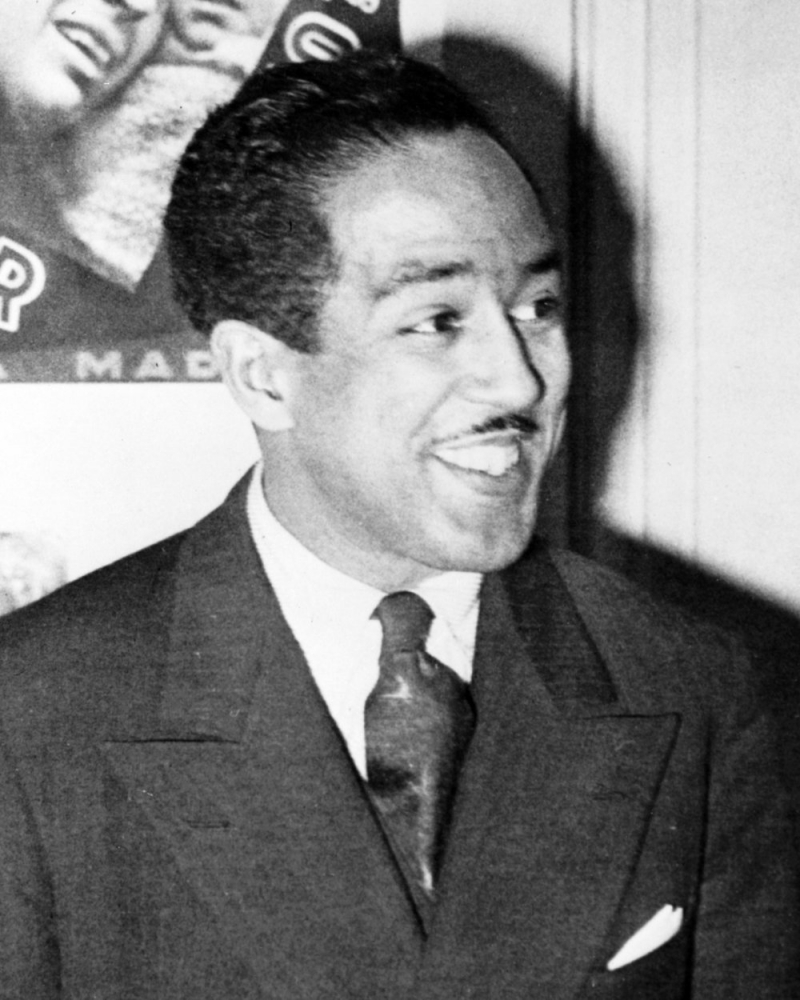
Source: kclinc.org -
Maya Angelou's lyrical poem "Phenomenal Woman" was first included in her collection of poetry "And Still I Rise" in 1978. This poem, "Still I Rise," and the rest of the book were written with the intention of sending a powerful message against gender stereotypes and in favor of the empowerment of women.
Maya Angelou was a famous poet and civil rights advocate Maya Angelou. Over a fifty year period, she received numerous accolades for her work. She is most known in the United States for reciting her poetry "On the Pulse of Morning" on January 20, 1993, during President Bill Clinton's inauguration. Others point out that she is best known for being candid about her past as a sex worker, journalist, fry cook, and coordinator for an African American civil rights organization. Let's quickly review Maya Angelou's "Phenomenal Woman" before looking at some of the metaphorical language she employs and conducting a literary analysis.
A lady who is aware that she isn't attractive or cute but still understands why others draw attention to her when she enters a room is the subject of the lyrical poetry "Phenomenal Woman." She explains why even males dispute it and how attractive women don't believe her justifications, but she knows the truth: she is attractive. People of all genders stop and stare at her when she passes through a room because of the way she walks, the way she smiles, and the curves of her figure. She ends by saying people should feel lucky that they get to see such a sight.
Poet: Maya Angelou
Published: 1978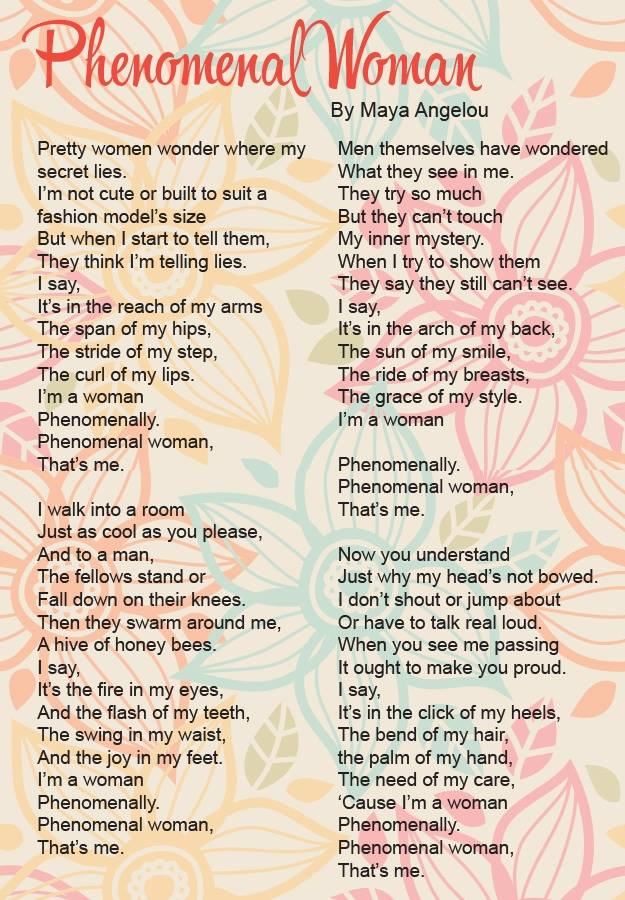
Source: motherofcolor.com 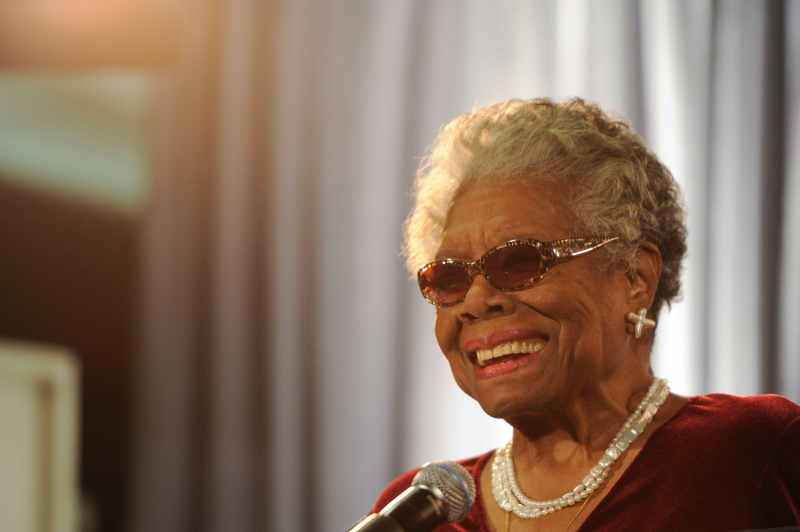
Source: North Country Public Radio -
Robert Hayden was a poet who lived in the 20th century, and his writings are recognized for both their literary and social value. Being the first African American appointed as a poetry consultant to the US Congress was one of Hayden's greatest literary achievements, and many of his works reflect his passion for history, particularly African American history. The length of the sections in Robert Hayden's three-stanza poem "Those Winter Sundays'' varies, but the overall idea is the same throughout. In the poem, the speaker's father describes a time when he provided for his family in ways that went unnoticed even if the speaker suggests that his father's work was admirable and deserving of praise.
In reality, the speaker claims that while he benefited from that work, his father received little appreciation for it. This idea appears frequently in the lyrics to "Those Winter Sundays," and it finally becomes apparent that the unthankful boy has grown up to critique his lack of thankfulness as a youngster, while he links the problem to his early failure to comprehend his father's difficulties. The relationship ultimately failed because of the rift caused by miscommunication, and there is no indication that it was ever patched up. As a result, the poetry is burdened with guilt.
Poet: Robert Hayden
Published: 1962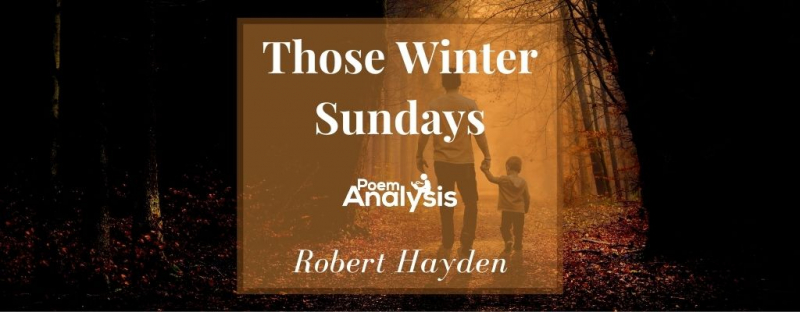
Source: poemanalysis.com 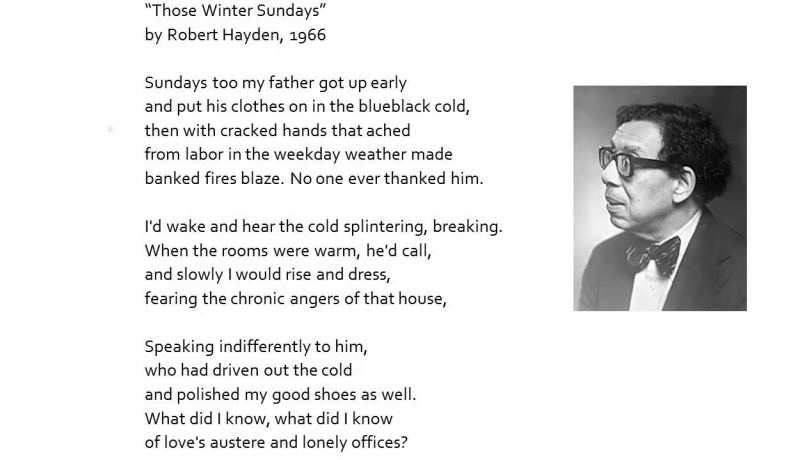
Source: YouTube>Shannon McGregor -
American poet and social activist Langston Hughes wrote the poem The Negro Speaks of Rivers. In 1921, The Crisis journal published it for the first time. The poem recalls recollections of African slavery, particularly the attempt to end it by Abraham Lincoln. The narrator shares recollections associated with Africa's historic rivers and speaks from the depths of his soul. This poem attempts to create a bridge between the past and present from the perspective of an elderly soul. Beginning the poem with a reference to old rivers of the world, the speaker may be alluding to a time when Africans were happily coexisting with Europeans before being brought to America as slaves. The narrator's enormous brilliance is on full display in this detailed and descriptive explanation, which also enables him to draw a clear distinction between members of his race and the rest of human civilization. In the early 20th century, White Americans frequently considered their counterparts with darker skin to be less than human; Hughes here provides specific examples of historical justice.
Although racism as a problem still exists today, it can be seen that over time, there has been an improvement in the acceptance of people who have varied skin tones. Today, the globe aspires to be a completely inclusive community. According to "Ancient, dusky rivers" (Hughes, 2009), the African-American community has gone through dark and troubling times in the past. But by adding, "My soul has grown deep like the rivers," the author informs the readers that modern-day Africans have become stronger by enduring hardship and suffering (Hughes, 2009). The poem purposefully depicts black history, which undoubtedly has an impact on modern American society. The Negro Speaks of Rivers thus demonstrates how the Afro community has developed over the decades by showing how they evolved from being oppressed slaves to having the same privileges as other American citizens.
Poet: Langston Hughes
Published: 1921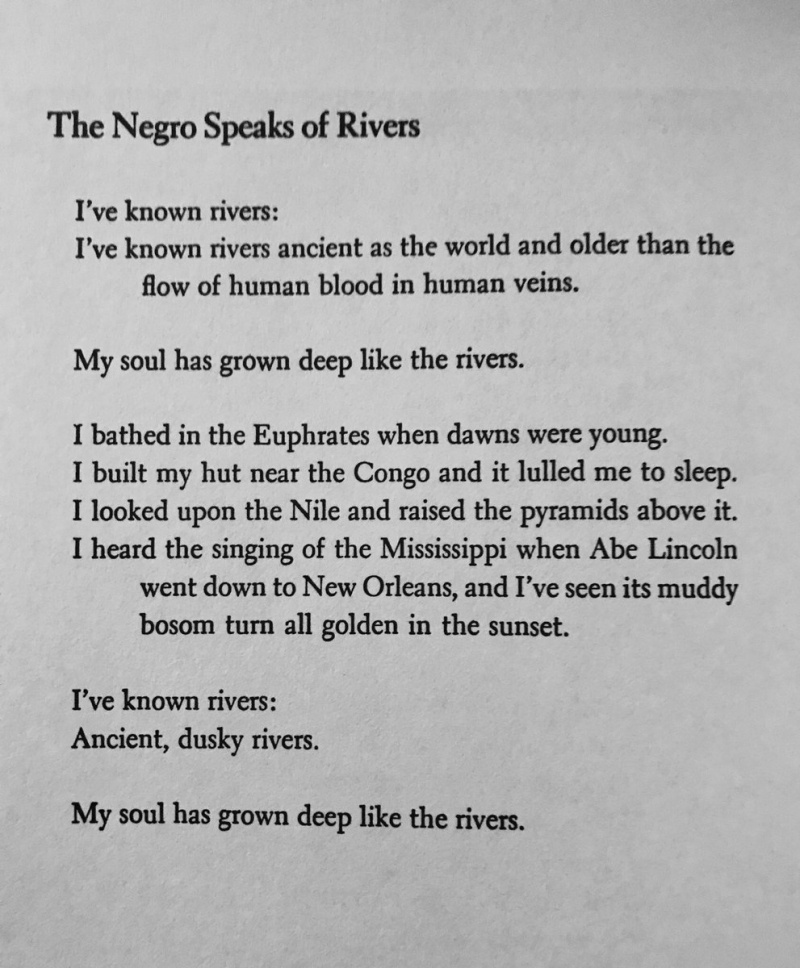
Source: Twitter 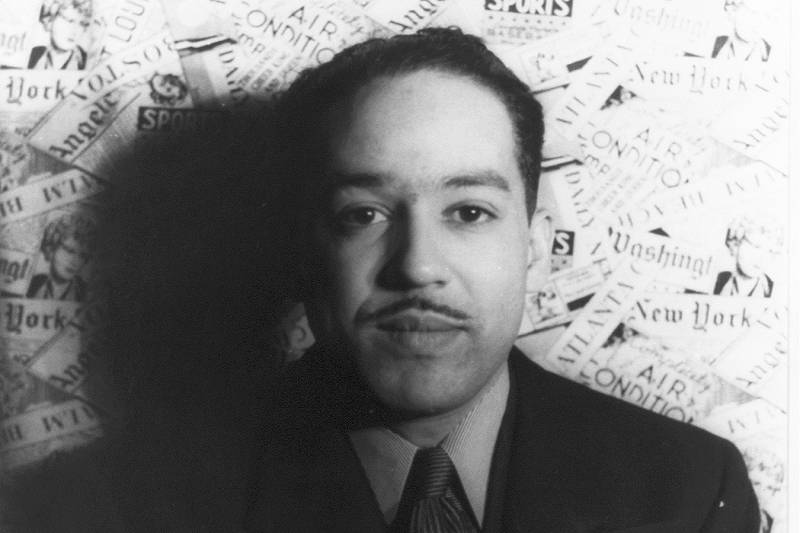
source: poetryhouse.co.uk -
Still I Rise replies to decades of abuse and injustice that black people have endured by addressing the white people who have been responsible for it. In the first stanza of the poem, the narrator discusses numerous forms of tyranny, including writing. Still I Rise celebrates the unbreakable spirit of Black people and expresses confidence in their ability to prevail in the face of bigotry and hardship. It is both Maya Angelou's most well-known and favorite poem. She frequently used it in her public readings and cited it in interviews. Nelson Mandela performed this poem at his inauguration as president in 1994.
Perhaps the most well-known poetry by an African American is Still I Rise, which has been referred to as a "proud, even defiant statement on behalf of all Black people”. Black women's response to society's perceptions is expressed in this poem. Black women are "de mule uh de globe," or "the mule of the world," to borrow a phrase from another black author, Zora Neale Hurston, who wrote in ``Their Eyes Were Watching God. Despite the extreme brutality and disrespect they endure, black women like Hurston, Angelou, and others continue to fight against injustice. It is a resolute declaration of tenacity and assurance.
The poem is divided into quatrains, which are four-line stanzas, however the regularity of the form is abandoned after the seventh line. There are six and nine lines in the eighth and ninth stanzas, respectively, signifying the poet's liberation from restrictions. I rise is repeated often as a statement of liberation. The ABCB rhyme scheme is dropped, resulting in the ABABCC rhyme scheme in verse 8 and the ABABCCBBB rhyme scheme in stanza 9. In the final two stanzas, she also dispenses with the conventional metrical beat. The poet begins in the first person singular ‘I’, addressing the reader or a listener as ‘you’. The tone is assertive and challenging, the colloquial language interspersed with lyrical snatches.
Poet: Maya Angelou
Published: 1978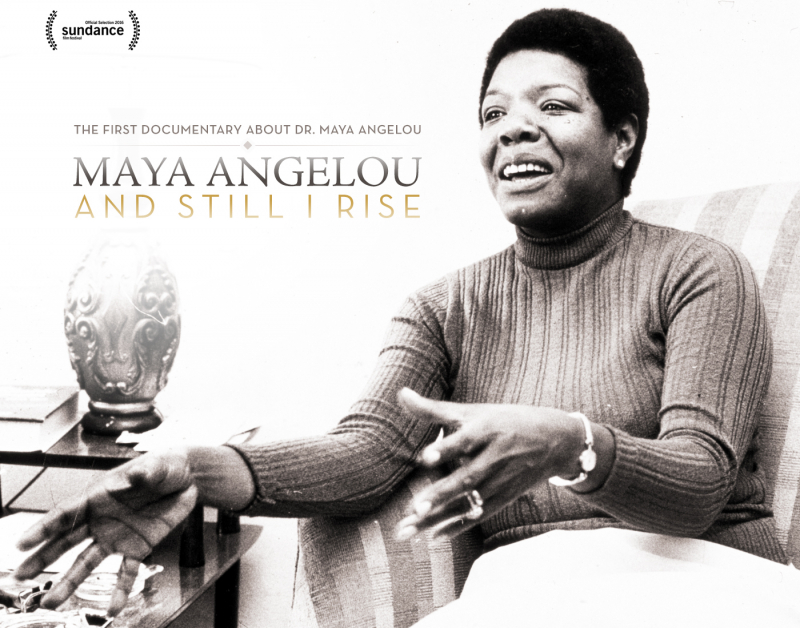
Source: blackfilm.com 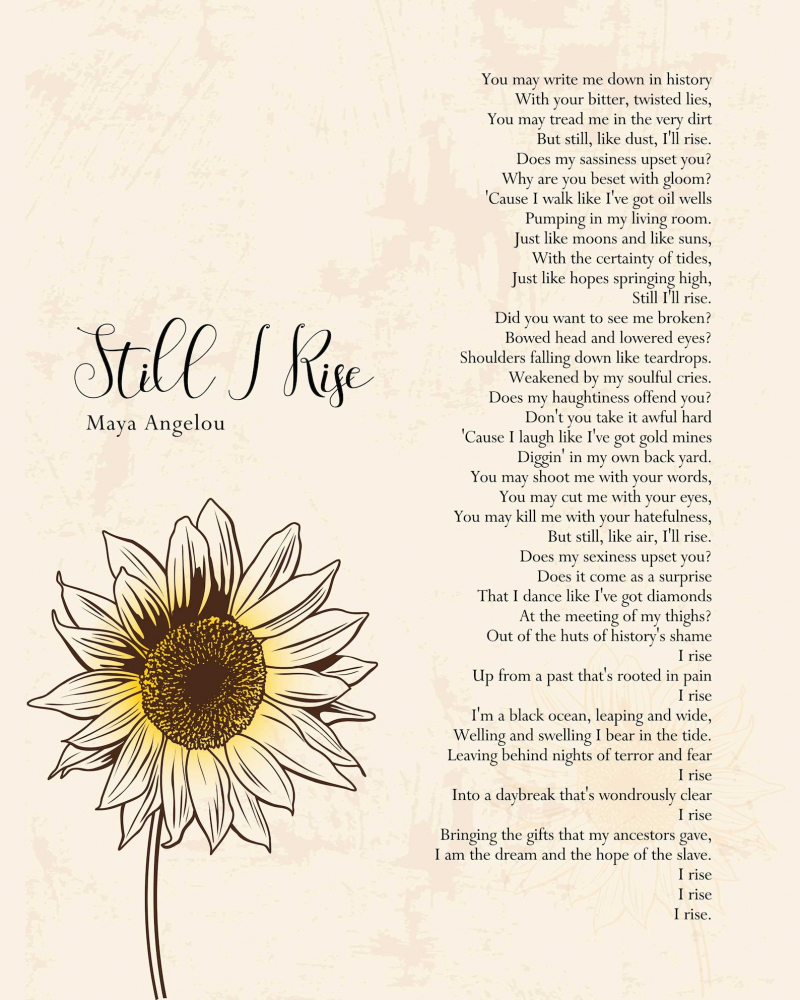
Source : Etsy












